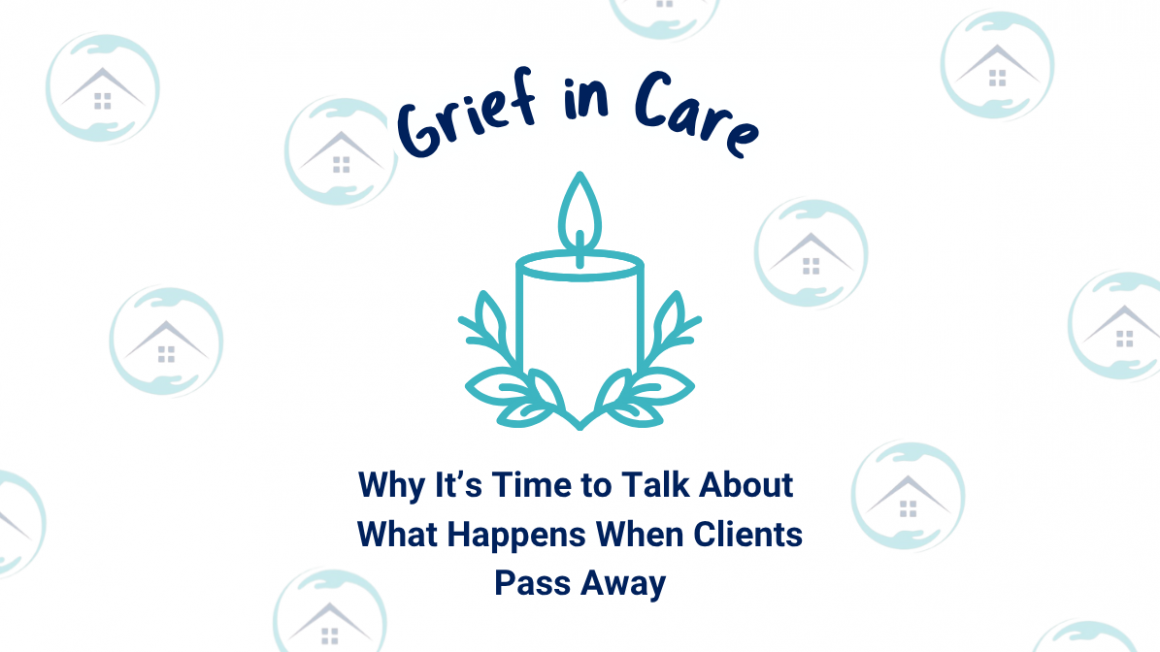In care, there are moments of joy and laughter, small daily victories, and deep human connection. But there are also moments of loss that are rarely spoken about.
For carers and healthcare professionals, losing a client can be one of the hardest parts of the job. It is the quiet grief that often goes unseen, yet it touches almost everyone who works in care.
The Bonds That Form in Care
When you support someone regularly, you do not just see their routine, you become part of their world. You learn how they take their tea, listen to their stories, and celebrate their good days. You are there in the quiet moments, in the laughter, and sometimes, at the end.
That kind of connection is what makes care so meaningful, but it is also what makes loss so hard. When a client passes away, it can feel as though part of your daily purpose has gone too.
The Unspoken Side of the Job
Many carers return to work the next day, moving straight on to their next visit. There are new clients who still need help, and life in care rarely pauses. Yet that sense of grief and emotional fatigue does not simply disappear.
For some, the sadness can surface later, in reflection, in conversation, or in small reminders. The emotional labour of care is immense, and when we do not acknowledge this, we risk asking too much of those who give so much of themselves.
Building Space for Support
At Avanti Homecare, we believe in creating a culture that supports the whole person, not just the professional role. This means giving our team room to talk about loss and process what they feel.
Our care leaders and trainers are helping staff build emotional resilience through open conversations, reflection, and learning. Whether that is a quiet chat after a difficult day or structured supervision, we make space for carers to be honest about how they are coping.
Because the truth is, grief in care is not weakness, it is compassion showing its cost. Acknowledging it helps protect both the people who provide care and the quality of care itself.
To strengthen this commitment, we are expanding our HR team to focus on mental health and wellbeing across the business. By investing in the right people and systems, we can offer stronger, more consistent support for every member of our team.
Our Care Leaders also go above and beyond to nurture emotional connection and community. A moment that stands out is a tea party they organised in memory of a client who had been part of the Avanti family for many years. Carers contributed messages and photographs to create a memory book, presented to the client’s family at her funeral. Her daughter described it as “a beautiful tribute”, including photos she had never seen before. This thoughtful gesture provided comfort to the family and space for our team to grieve together, a reflection of the compassion and humanity that underpin our care.
A Shared Responsibility
As a sector, we need to normalise talking about loss. Healthcare professionals, community teams, and managers all play a part in recognising when someone might be struggling. Compassionate leadership and peer support are vital.
Grief will always be part of caring, but it can also remind us why this work matters. Every connection leaves an imprint, and every carer carries those memories forward into new relationships, bringing with them empathy, patience, and understanding.
Honouring the Heart of Care
Loss in care is deeply personal, but it is also a shared experience that connects every professional who has ever supported someone through their final days. By talking about it openly, we can make sure carers feel valued, supported, and never alone in their emotions.
Because behind every act of care is a human being, someone who feels, remembers, and continues to care long after the visit ends.
A huge thank you from all the team at
![]()


